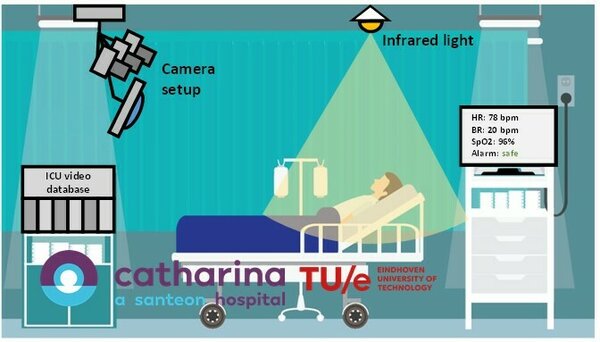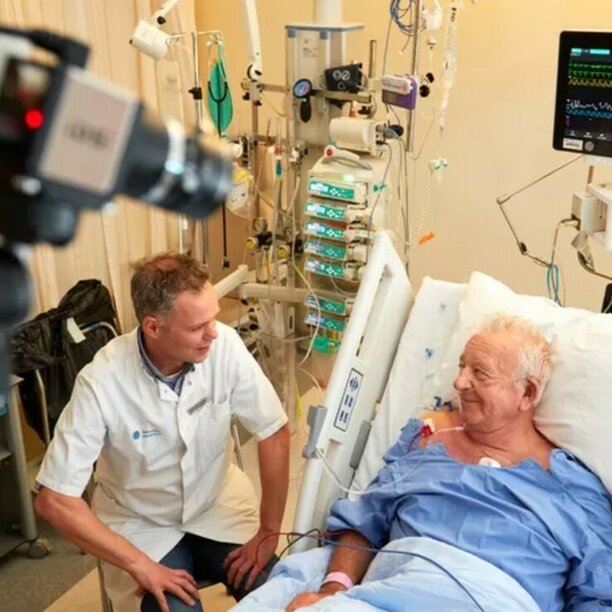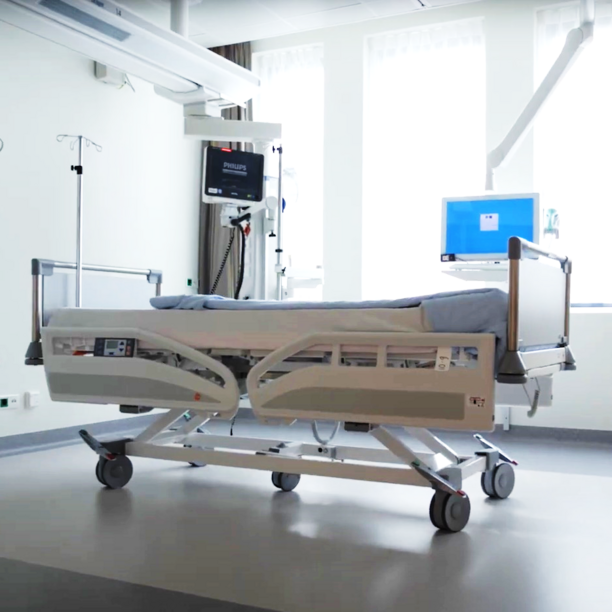
The FORSEE project
In hospitals, a high percentage of unexpected deaths occur in nursing wards. This is related to the limited extent to which patients are monitored in these wards. Surveillance equipment is highly expensive and requires a lot of work from healthcare staff. Moreover, it is not pleasant for patients to be constantly connected to all kinds of devices.
The FORSEE project, a collaboration of the Catharina Hospital and the TU/e, aims to solve these problems with a smart camera that registers heart rate, respiration, temperature and movement, and based on these measurements predicts whether the patient's health suddenly deteriorates. This innovative technology is contactless and therefore does not burden the patient, costs potentially less, and requires less work from healthcare staff. Most important, patients can be monitored continuously, allowing timely intervention in the event of acute deterioration.
The first results of the study are expected in the summer of 2021. Ultimately, the FORSEE project (2020-2025), an initiative of the Eindhoven MedTech Innovation Center (e/MTIC ), and subsidized by ZonMw, NWO, the Hartstichting and the Dutch CardioVascular Alliance (DCVA), will last five years.

